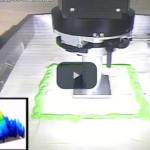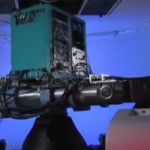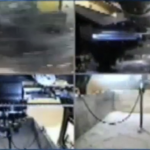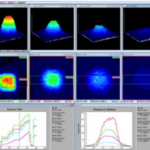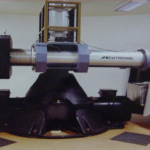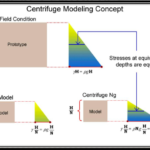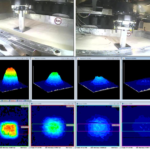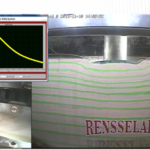Virtual Lab Allows High-End Equipment Access to Online Engineering & Biotechnology Students
Three universities team up so students can utilize a geo-centrifuge facility
When it comes to conducting complex experiments online, remote access labs are among the most innovative solutions on the horizon these days. In fact, this trailblazing approach inspired a group of enterprising universities to join forces in developing a sophisticated virtual lab for geotechnical engineering students that incorporates the latest commercial technologies and applications.
In providing an opportunity for emerging geotechnical engineers to perform sophisticated experiments from a distance, Southern Methodist University partnered with Rensselaer Polytechnic Institute and the University of North Carolina Charlotte to build a state-of-the-art virtual laboratory. And according to all involved, it has been a brilliant success turning what was once a passive learning experience into a highly interactive one which enables students to better understand the principles and concepts they will use in designing civil engineering systems and conducting advanced data analysis.
By incorporating the latest video monitoring and tele-control technologies students at each of the three campuses can remotely access RPI’s geo centrifuge facility to perform, interpret, and evaluate collaborative experiments in real-time. Designed to mimic actual field conditions, this high-tech facility bridges the gap between theoretical and physical modeling so students working across campuses can visually observe the response of soil and soil-foundation systems while also interpreting critical data and comparing actual results to hypothetical predictions.
Equally important, they have a unique hands-on opportunity to master advanced geotechnical procedures, technologies, and applications, a tremendous professional advantage when it comes to moving from coursework to real work. Of course, for the universities involved, this virtual lab serves as a model for cost-effectively sharing both the resources and research essential for pioneering new and more effective ways of teaching and learning in the field of civil engineering.
Indeed this groundbreaking lab won the 2015 Wharton QS Stars Reimagine Education Bronze Award as an innovative online approach for building skills and enhancing employability.
How often to online students gain access to high-end equipment? Such is the case with a 150 g-ton geotechnical centrifuge housed at America’s first technological research university.
Rensselaer Polytechnic Institute (RPI) founded in Troy, New York, in 1824, focuses in a wide range of fields, with an emphasis on biotechnology, nanotechnology, computational science and engineering, data science, and the media arts, and technology.
150 G-Ton Centrifuge Virtual Lab Accessible to Online Students
The high-end equipment was first used to conduct physical model simulations of soil and soil-structure systems subjected to an earthquake. Throughout the years it has been used in a number of research and engineering projects where researchers from RPI and around the world conduct tests for interpretation and analysis. Some research is well known such as the studies on the  New Orleans levee failures caused by Hurricane Katrina.
New Orleans levee failures caused by Hurricane Katrina.
The decision to use the centrifuge as a virtual laboratory brings the opportunity for remote collaboration and major experimentation into geotechnical engineering classes. A partnership between RPI, Southern Methodist University (SMU), based in Dallas, TX, and the University of North Carolina (UNCC) of Charlotte enables students to conduct experiments, access, interpret, evaluate, and exchange relevant technical information.
By making this high-end equipment available online, what has traditionally been presented in a passive manner now offers students the opportunity to interactively and visually learn core concepts. By virtually utilizing the centrifuge facility, remote students gain a deeper understanding and are able to put theory into practice.
Designed to overcome the limitations of traditional small-scale physical models, which struggle with environments that mimic actual field conditions, the centrifuge has a high gravitational field that produces stress levels similar to other prototypes such as a wind tunnel for studying cars. Students can also remotely collaborate to test the response of soil and soil-foundation systems in a controlled environment.
How the Virtual Engineering Lab is Used in the Undergraduate Level Online Course Module
The partner project implemented a module that integrates the remote major research facilities into undergraduate classes via web-based technologies that enable real-time monitoring and shared execution of experiments. Students tele-control the virtual lab and have access to relevant technical information for interpreting and evaluation so they can visually observe the responses. The module is leading to students better understanding the physical meaning of engineering principles. One finding from the project shows that it is improving the students’ capabilities to design civil engineering systems and conduct advanced data analysis.
Gaining the skills sets learned from experimentation and computational analyses with the virtual lab ties theoretical with physical modeling. Typically not used widely among most institutions, the virtual lab provides a competitive advantage for students. Learning to work in geographically dispersed virtual provides real-world experiences and gives access to powerful technology not generally available to all.
X-Box Kinect Gaming Sensors Added to Enhance the Virtual Lab Experience
Beyond the partnership project, Rensselaer continues to demonstrate The New Polytechnic, an emerging paradigm for teaching, learning, and research. A fine example is the work they have done to develop new visualization methods to evaluate erosion quantity and pattern. Using Microsoft’s X-Box Kinect gaming console as a sensor add-on, researchers have replaced expensive sensors with the more natural interface, which allows users to interact intuitively.

